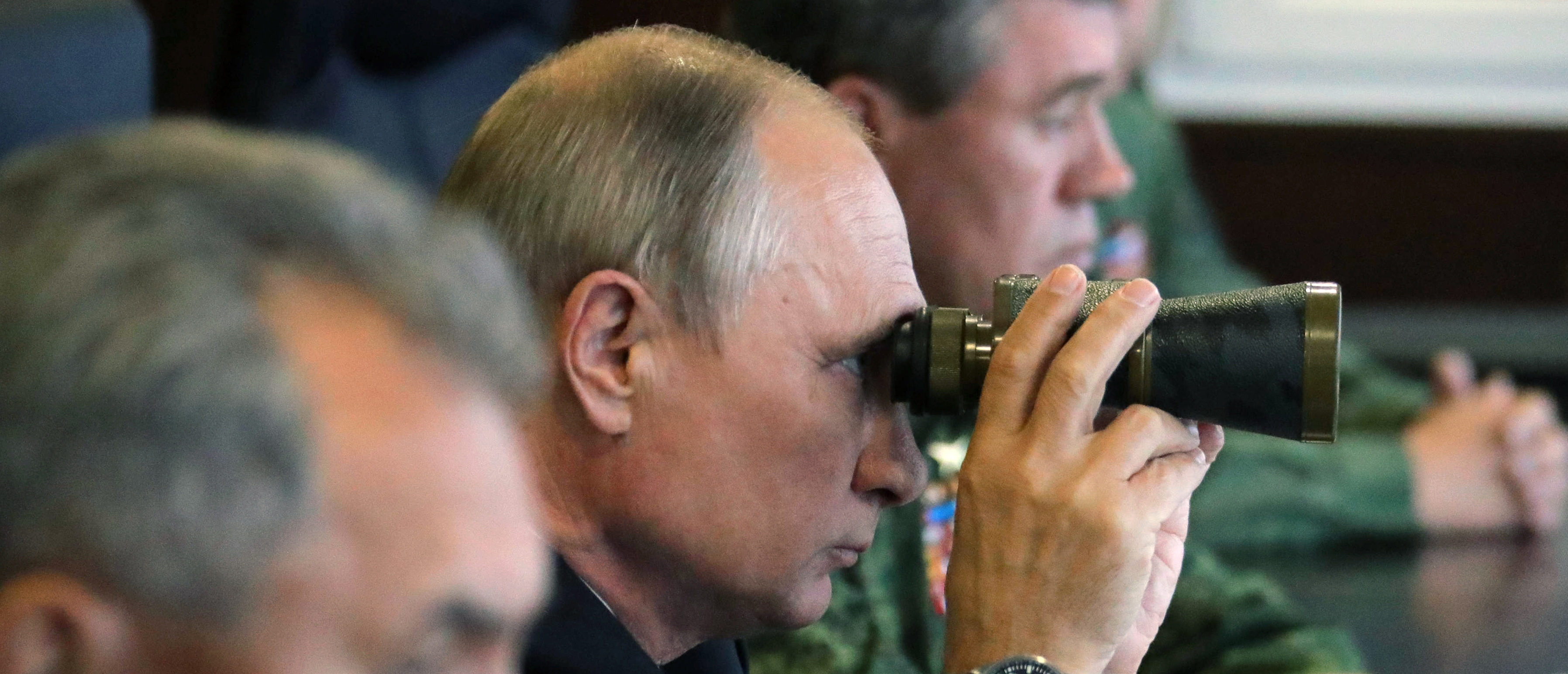The Trump administration told international partners Thursday that the United States will be withdrawing from the Open Skies treaty, which allows member countries to conduct unarmed observation flights over other signatories’ territory.
The administration also said that Russia was violating the treaty by restricting parts of its airspace, according to the Associated Press.
The idea of a reconnaissance treaty was first proposed in 1955 by President Dwight Eisenhower, but the Open Skies treaty did not formally enter into force until 2002 when the Bush administration reached a deal with Russia. Since then, 34 countries have signed and ratified the treaty and more than 1,500 reconnaissance flights have been conducted.

Russian President Vladimir Putin inspects a military exercise (Mikhail Klimentyev/Sputnik/AFP via Getty Images)
Russia has violated international arms treaties in the past, such as in 2019 when NATO reported that Russia was in violation of a treaty on immediate-range nuclear weapons. The Trump administration ended up withdrawing from that treaty after Russia refused to comply.
Administration officials said Thursday that Russia restricted flights over Moscow and its enclave of Kaliningrad, located between Poland and Lithuania and the base of operations for Russia’s naval fleet in the Baltic Sea. (RELATED: Report: Russia Could Attack Three NATO Countries With 24 Hours’ Notice)
Russia also restricted member countries from flying over its border with Georgia, which includes disputed areas like South Ossetia and Chechnya. Russia had previously gone to war with Georgia over these areas in 2008, and Russian President Vladimir Putin has overseen efforts to destabilize Georgia since then.
President Trump’s allies in Congress like Republican Arkansas Sen. Tom Cotton have urged him to withdraw from the treaty in the past. In a statement released Thursday, Cotton praised the move and said that Russia had used the treaty as a “scheme to snatch a military and surveillance advantage over the U.S. and NATO.”


